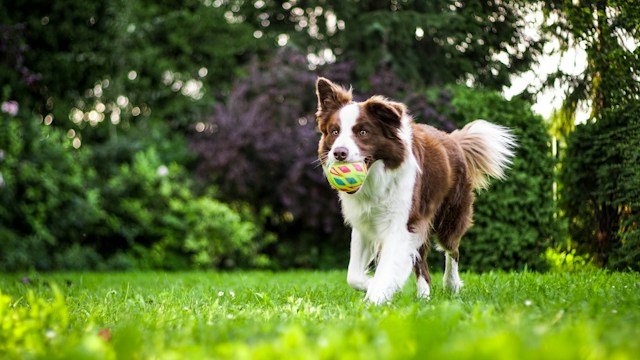You love dogs and you have finally made the rewarding decision to adopt a rescue pet. As you embark on this exciting journey, you may encounter challenges, including trust issues your new furry friend might have. This is a common behavior seen in dogs from a shelter or rescue environment. Fear not, as there are several positive reinforcement techniques you can employ to help your pet overcome these challenges, foster trust, and aid their overall rehabilitation. This article will provide you with essential information on how to handle these issues, train your rescue dog and ensure your new pet feels safe and loved.
Understanding Your Rescue Dog’s Behavior
Before embarking on the training journey, you need to understand why your dog is behaving in a certain way. Dogs from rescue shelters often come with a history of abuse or neglect. They may have been abandoned, mistreated, or lived in stressful conditions which can trigger fear, anxiety, and mistrust in people. These experiences lead to the development of unwanted behaviors, such as aggression, fearfulness, or excessive barking.
Also read : How to Use Environmental Enrichment to Alleviate Anxiety in Shelter Cats?
Understanding these behaviors is the first step towards your dog’s rehabilitation. It’s important to remember that these behaviors aren’t a sign of a bad dog, but rather a reflection of their past experiences. Once you understand your dog’s behavior, you can start implementing techniques to help them feel safe and in control, which will facilitate trust-building.
Building Trust Through Time and Patience
Building trust with a dog that has experienced trauma can be challenging. It is not an instantaneous process, but rather a journey that requires time, patience, and understanding. You need to provide a safe environment for your dog, be predictable in your actions, and show them that they are now in a place where they will not be harmed.
Also to read : What’s the Ideal Protein Intake for a Growing Great Dane Puppy?
Start by giving them their own space, such as a crate or a separate room, where they can retreat when they feel uncomfortable. This will help them feel safe and in control of their environment. Spend quality time with them, but avoid forcing interaction. Let them come to you when they are ready. Bear in mind that each dog has its own pace and it may take weeks or even months until they fully trust you.
Utilizing Positive Reinforcement Training
Positive reinforcement training is a powerful tool for rehabilitating rescue dogs. It focuses on rewarding good behavior rather than punishing bad behavior. This type of training helps dogs learn which behaviors are desirable, instilling a sense of control and self-efficacy, which is crucial for dogs that have experienced trauma.
Start with simple commands such as “sit,” “stay,” or “come.” Whenever your dog responds to the command correctly, reward them with a treat or a pat on the head. This will make them associate positive behaviors with rewards, encouraging them to repeat these behaviors.
Remember, training should be a fun experience for both you and your dog. Avoid yelling or using punishment as it can trigger negative responses and reinforce their trust issues.
Seeking Professional Help
Sometimes, despite your best efforts, your rescue dog’s behaviors may not improve, or might even escalate. In such cases, seeking professional help can be tremendously beneficial. Dog behaviorists and trainers who specialize in rehabilitation can provide personalized training programs tailored to your dog’s specific needs.
Through their expertise, they can accurately identify the root cause of your dog’s behavior and recommend effective strategies to address them. Don’t hesitate to reach out to a professional if you’re feeling overwhelmed. Your efforts to seek help will contribute significantly to your dog’s rehabilitation and trust-building journey.
Reinforcing Trust and Good Behavior
Once your dog starts showing signs of progress, it’s crucial to continue reinforcing trust and positive behavior. Consistency is key in this process. Keep practicing the training techniques, spend quality time with your pet and continue to provide a safe and loving environment.
Remember, rehabilitation is not an overnight process. It requires dedication, consistency, and patience. However, the reward of seeing your rescue dog grow into a confident, trusting, and happy pet makes the entire process worthwhile. Keep in mind that the journey you’re on is not just about rehabilitating your dog, but also about building a special bond that will last a lifetime.
Integrating Obedience Classes into Your Training Program
Incorporating obedience classes into your training program can be a game-changer in your journey to help your rescue dog overcome trust issues. Obedience training teaches dogs basic commands and behaviors, which can be particularly helpful for dogs with a history of neglect or abuse. This type of structured training can help dogs learn discipline and control behavior, which in turn can reduce anxiety and build confidence.
These classes provide a structured setting where your dog can interact with other dogs and people under controlled conditions. This exposure can be incredibly beneficial for dogs with trust issues, as it helps them to gradually and safely adjust to new situations, people, and other dogs. This can significantly contribute to their rehabilitation and trust-building process.
When choosing an obedience class, it is crucial to find a trainer who uses positive reinforcement techniques. These are training methods that reward dogs for desired behavior, which encourages them to repeat the behavior. Positive reinforcement can be anything your dog finds rewarding – treats, toys, praise, or even a game of fetch.
Remember, the goal of obedience training is not just to teach your dog commands, but also to help them learn to trust and feel safe. Therefore, it is crucial to ensure the training environment is positive, respectful, and supportive.
Behavior Modification for Rescue Dogs
Behavior modification is a crucial aspect of rehabilitating a rescue dog with trust issues. It involves using various techniques to help change a dog’s reaction to something they find upsetting or scary. Essentially, it’s about replacing negative behaviors with more positive alternatives.
This process can be complex and often requires patience and time. However, with the right approach and the use of positive reinforcement techniques, it can be incredibly effective. For instance, if your rescue dog reacts with fear or aggression when approached by strangers, you could start by having a friend approach your dog while you reward them for calm behavior. This can help your dog associate strangers with positive experiences, thereby reducing their fear or aggression.
In severe cases, you might need a professional’s assistance. A dog behaviorist or a trainer experienced in behavior modification can guide you through this process and provide practical strategies tailored to your dog’s specific needs.
Keep in mind that every dog is unique, and what works for one might not work for another. Therefore, it’s important to be patient, persistent, and supportive throughout this process.
Conclusion
Rehabilitating a rescue dog with trust issues is undoubtedly a challenging process. It requires understanding, patience, and a commitment to using positive and gentle techniques such as positive reinforcement, obedience classes, and behavior modification strategies.
However, the reward is invaluable – you’ll not only help a rescue dog overcome their fears and insecurities, but you’ll also build a bond of trust and friendship that will last a lifetime. Remember, the journey may be long and sometimes rocky, but with dedication and love, your rescue dog can transform into a confident and joyful pet that brings endless love and happiness into your life.
As you embark on this rewarding journey, remember to be patient, stay positive, and keep in mind that every small progress is a step towards a happier, more confident dog. After all, what matters most is not how quickly your dog progresses, but the quality of the life-long trust and bond you’re building together.











